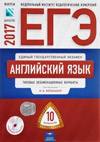Тест №01 по ЕГЭ. Английский язык
- Подробности
- 21523
 |
||
|
Установите соответствие между текстами A-G и заголовками 1-8. Занесите свои ответы в таблицу. Используйте каждую цифру только один раз. В задании один заголовок лишний. TEST 01 |
1. Food: eating habits
2. Entertainment with vegetables
3. Food: its features
4. Entertainment with animals
5. Population
6. Time to relax
7. With nature
8. Spain as a state
A. A unique food battle festival known as La Tomatina is celebrated in Spain every year on the last Wednesday of August. It involves thousands of people engaging in a brutal battle, throwing overripe tomatoes at each other. The festival spans more than a week and although there are many elements to the festival, such as parades, music, dancing and fireworks, they are all centered on the tomato fight.
B. Spanish cuisine is a heavenly mixture of chicken, mixed vegetables, fish and meats. Many of the most popular Spanish dishes are a type of Paella, which is a rice dish that features a variety of ingredients. Hot chocolate and churros are very popular desserts throughout the country. Spain is also famous for its aromatic wines and other alcoholic beverages like Sangria, Cava and authentic Spanish beer.
C. Spain is very rich with traditions, especially those associated with food. For breakfast, some families buy fresh churros, pair them with hot chocolate and enjoy a leisurely morning routine. Lunch is another important meal of the day, and it is usually heavier than breakfast. This is sometimes followed by a siesta, an afternoon nap to get through post-lunch drowsiness. During this time, shops close and then open again after two or three hours of rest.
D. Spain is an important resting spot for migratory birds, and a home for many animals. But, unfortunately, many species of wildlife face threats from habitat loss
and pollution. Due to centuries of tree cutting, large forests are now found only in a few areas in the country. Spain has created many national parks and refuges,
but they cover only about seven percent of the country.
E. Although there is a national parliament, Spain is one of the most decentralized democracies in Europe. Each of its 17 regions manages its own schools, hospitals, and other public services. The tourist services industry drives Spain's economy, but at the same time, since 1986, when Spain joined the European Community, it has worked to diversify its economy, by building important industries such as mining, shipbuilding, and textiles.
F. Bullfighting is one of the most famous traditions in Spain. This risky sport evolved from the ancient Roman gladiator games, with human matadors opposing charging bulls. However, this tradition has lately become widely debated and younger generations and animal-rights activists protest against bullfighting. Either way, it remains an iconic part of the country and bullfights take place in many Spanish towns and cities.
G. La siesta is a well-known aspect of Spanish culture. Seeking to balance work with pleasure, Spaniards have long practiced this tradition, when students and professionals return to their homes around midday for a big lunch, followed by a few hours of rest and family time. Many businesses also shut down for a short break. However, 21st-century big cities move at a faster pace, and don't take siestas, but many people in smaller towns and villages still take a siesta each day.
| № текста | A | B | C | D | E | F |
| тема |





 Как правильно изучать английский язык по карточкам (статьи)
Как правильно изучать английский язык по карточкам (статьи)